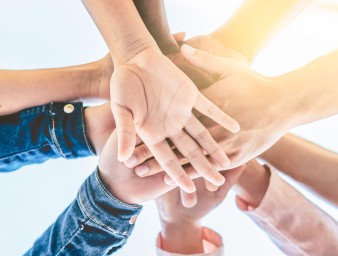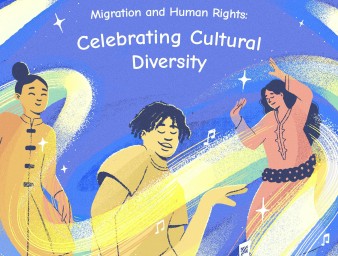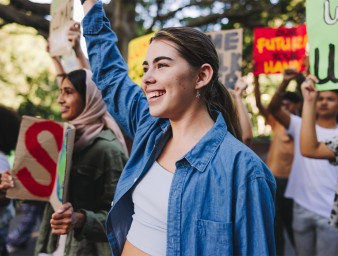Project reunites trafficked children with families
18 January 2023
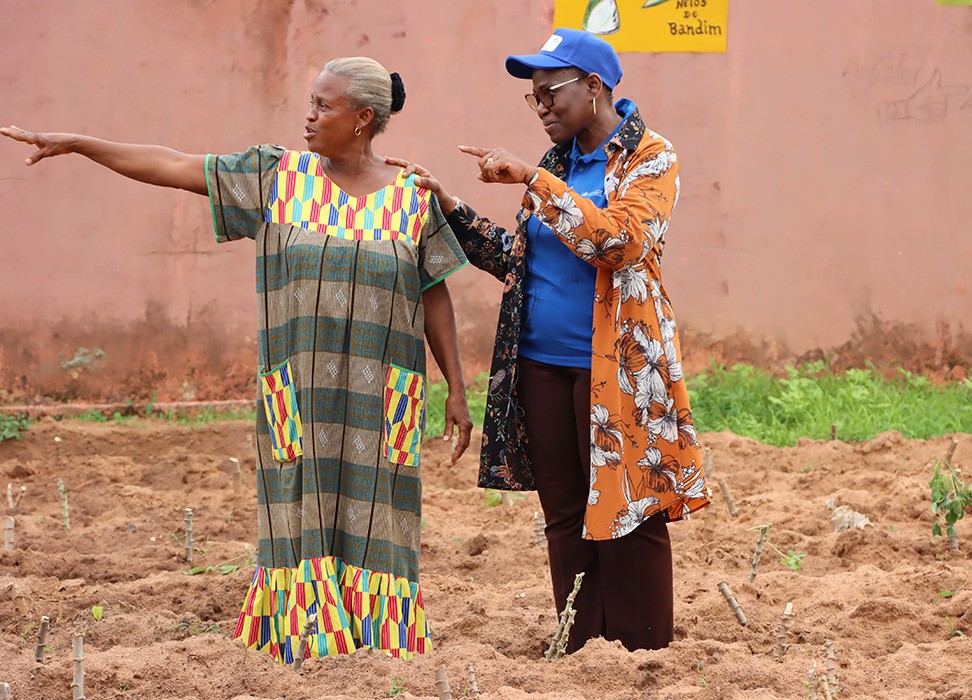
"You saved me!”
It was with this cry that five-year-old Aruna Candé threw himself into the arms of Khady Florence Dabo, President of the Institute for Women and Children of Guinea Bissau and the boy's godmother. She saw him again during a follow up visit to his village.
Aruna had lived on the streets in Dakar begging since the age of 3 to survive. He was able to return to his village and family in rural Guinea Bissau thanks UN Human Rights West Africa Regional Office (WARO)through the Project to Protect Child Victims of Rights Violations (PAPEV).
Aruna’s case is not isolated. In west African countries, many children are taken away from their parents when they are at a very young age, to go and beg in the capitals of neighbouring countries, thus becoming victims of human trafficking. Aruna, along with23 other children, who were begging on the streets of Dakar, Senegal, was able to return to his family, with proper identification documents and other necessities.
When children are returned to their families, if conditions allow, they are re-enrolled in school and returned to as close as possible to a normal life. If this is not possible, PAPEV provides a life kit, consisting of materials to enable the children to start learning a trade in order to become professional and bring income to the family.
Children taken across borders
According to the latest mapping by the African Committee of Experts on Children’s Rights and Welfare, between 2015 and 2018, more than 600,000 children in west Africa were victims of cross-border trafficking. Anecdotal projections show this number has increased for a variety of reasons including security context in the countries, precarious living conditions of the children and COVID-19 pandemic exacerbating already difficult socio-economic conditions.
Despite the increase in the number of child victims, of the total number of places to help them has remained static. Currently there are 137 Child Care Residential Centres across four countries (Mali, Guinea, Niger and The Gambia), with an average of 30 places per centre.
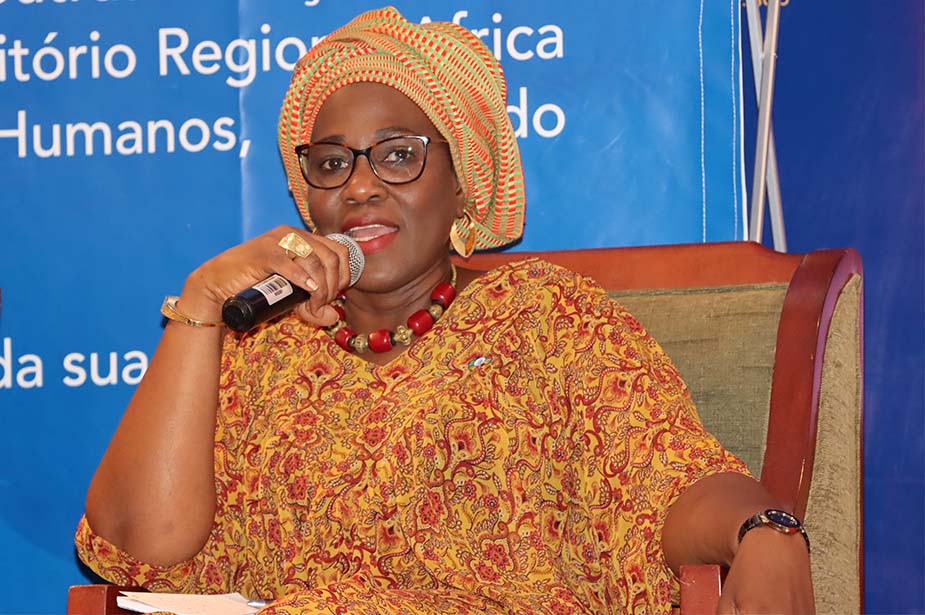
Aminata Kebe is the coordinator of PAPEV - project to support the protection of child victims of violation of their rights. © OHCHR WARO
It is to address these issues that the PAPEV was created by the UN Human Rights West Africa Regional Office (WARO). The project is funded by the Italian Agency for Cooperation and Development and is implemented in collaboration with the Economic Community of West African States(ECOWAS) Centre for Gender Development. It is implemented in six countries: Senegal, Mali, Niger, Guinea, Guinea Bissau, and The Gambia.
WARO supports countries by providing legal advice to initiate reforms in favour of child protection. Through PAPEV, it also organizes capacity building sessions for managers of the residential centres to provide better psychosocial care of child victims of trafficking, said Aminata Kebe, WARO’s PAPEV project coordinator.
"In the area of strengthening access to services, the project supported the provision of bedding materials, in particular mattresses, beds, sheets, blankets and cleaning products, to 47 childcare and protection structures,” she said.
In order to develop a regional response to cross-border child trafficking, the project initiated a broad consultation with the States and the ECOWAS Commission through its Centre for Gender Development (CCDG). These consultations led to the regional summit in Banjul of ministers in charge of gender and child protection and beneficiaries of the. During this high level meeting, it emerged that there is a need for better psycho-social services for children who reach the residential centres.
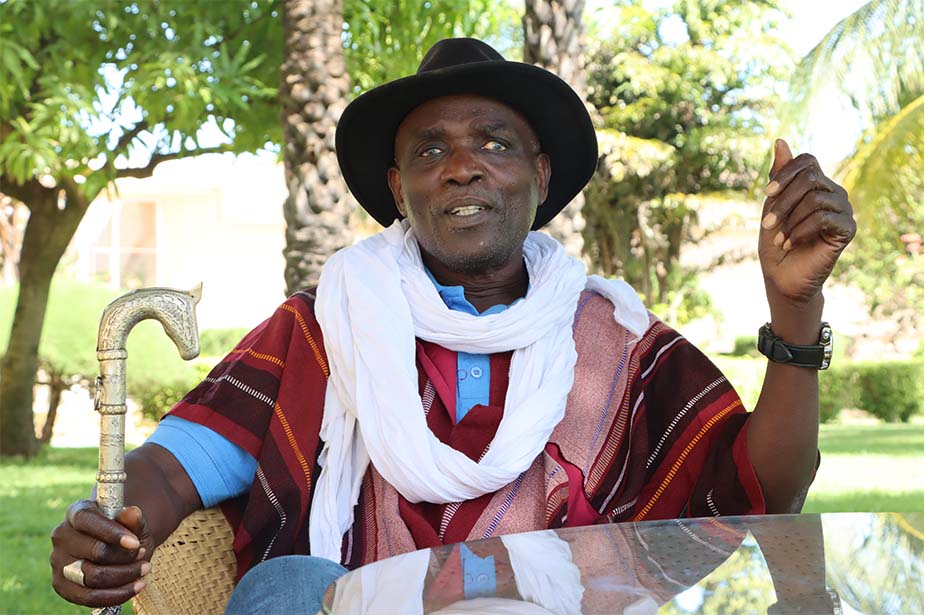
Professor Serigne Mor Mbaye, in Guinea Bissau during the regional training session in psychosocial care for reception center staff. © OHCHR WARO Habibou Dia
This led to a workshop on these skills. The workshop was led by Professor Serigne Mor Mbaye, clinical psychologist, international expert and Director of the Family Child Guidance Centre (CEGID).
"The children we find in a trafficking situation have experienced so much maltreatment or abuse of all kinds that we are obliged to help them to come out of an episode of post-traumatic stress, to come out of behavioural or relational disorders and sometimes out of multiple addictions,” Mbaye said. “The fundamental objective of the work we do with children is psychosocial support, giving them food, healing wounds, that is the easiest thing. The most difficult thing is to rehabilitate them so that they can continue their development in a harmonious way and pursue social adaptation.”
To mark the end of the training, the participants visited the Amic childcare centre in Guinea Bissau. Amic is a national NGO that promotes and defends children's rights. This centre receives children removed from the streets in border countries, who must return to their families in different part of the country
“The collaboration with WARO through the PAPEV has helped to improve the care of vulnerable children and victims of violations of their rights,” said Laudolino Carlos Medina, executive secretary of AMIC and coordinator of the West African network for child protection in Guinea Bissau. “In fact, in Guinea Bissau, there was no centre of this quality, so we ended up taking the children to hotels and it was very expensive.
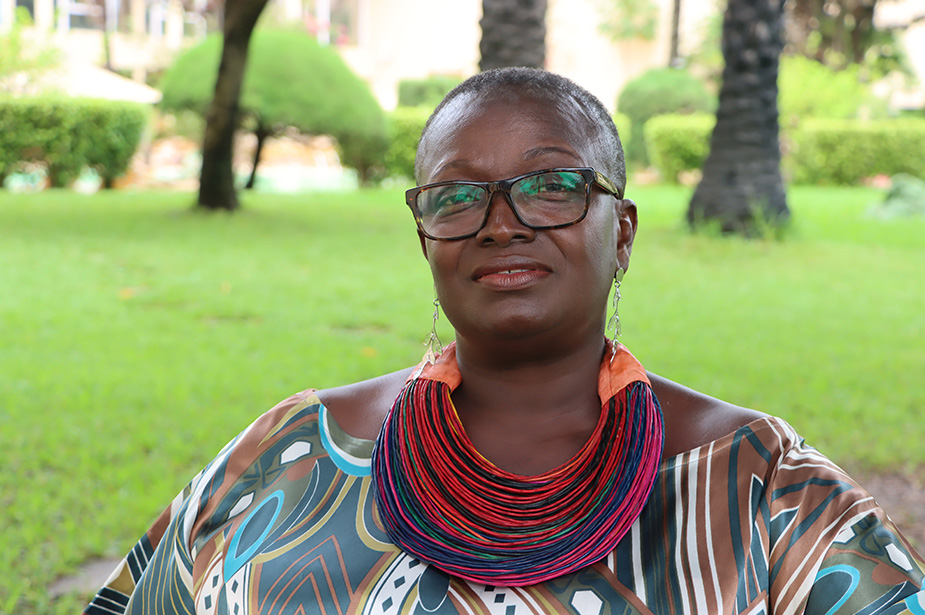
Khady Florence Dabo Korea, President of the Institute for Women and Children in Guinea Bissau, was instrumental in the rescue of Aruna Candé. ©OHCHR WARO
Thanks to the partners, the children are now receiving support and benefiting from courses and training workshops. For example, the sewing workshop, the art workshop, the cooking workshop, and also entrepreneurship courses. At the end of these courses, the children receive a reintegration kit, and with the income from these small activities, they are able to support their reintegration process with their families in a sustainable way.”
The second phase of the project will cover the period 2023 and 2025 and will strengthen both the community prevention mechanisms against child trafficking and the commitment of States to implement children's rights.
